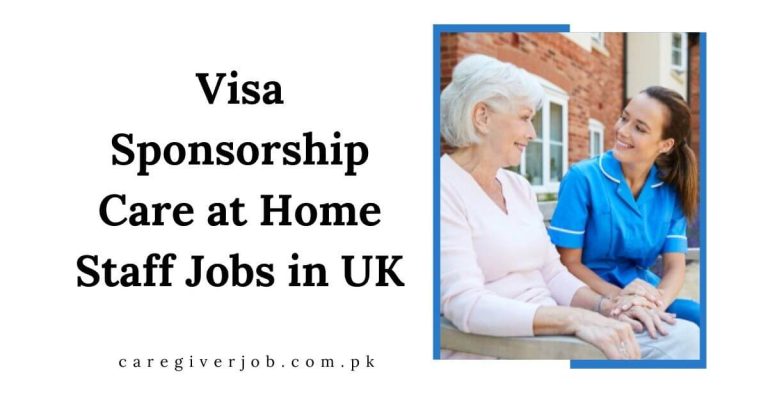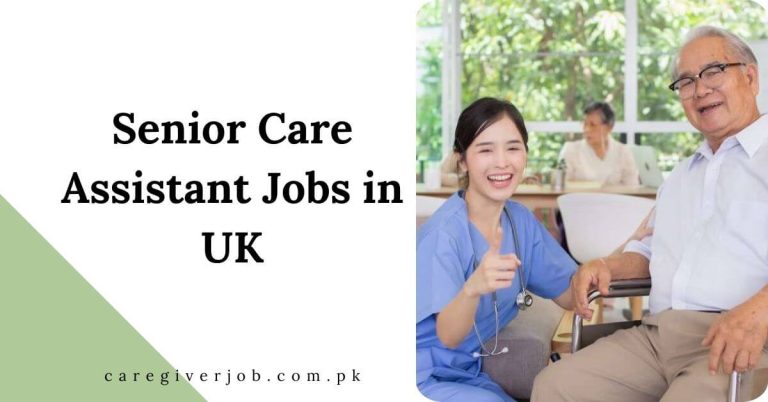Health and Social Care Workers Jobs in Ireland 2025 – Sponsored Offered
Ireland provides a plethora of opportunities in the health and social welfare sectors. A substantial number of work permits are issued annually as a result of the consistent high demand for workers in these disciplines. In recent years, Ireland has issued approximately 40,000 work permits, with a significant number of these permits being allocated to health and social care positions.
The Ireland Health and Social Care Work Visa provides an opportunity for individuals worldwide who are interested in these positions to investigate their options. The first quarter of the year is the time when the majority of work permits in this industry are issued.
Understanding Health and Social Care Workers Jobs in Ireland:
It is imperative to comprehend the health and social care employment landscape in Ireland prior to submitting an application for a visa. This comprehension will assist you in recognizing the opportunities that are present in this essential sector.
Check Also: Childcare Room Leader Jobs in Ireland – Apply Now
Health and Social Care Job Opportunities in Ireland:
- Nurses are essential:in a variety of healthcare environments, such as hospitals, clinics, and community health services. They render indispensable direct patient treatment.
- Care Assistants: Care assistants provide assistance with daily activities, including bathing, dressing, and dining. They are employed in senior living environments, healthcare facilities, and private residences.
- Healthcare Assistants: Such professionals are accountable for the administration of medications and the provision of assistance with wound care. They are essential in providing assistance to healthcare personnel.
- Social Workers: Social workers offer assistance and encouragement to individuals who are confronted with obstacles, including financial difficulties, emotional distress, or relationship problems.
Other Health and Social Care Roles:
This sector encompasses additional responsibilities, such as:
- Psychiatrist
- Occupational therapists
- Speech and language therapists
- Nutritionists
- pharmacists
- Professionals in the field of public health
Types of Employment Permits for Health and Social Care Workers Jobs in Ireland:
There are two primary categories of work permits available for individuals who intend to work in Ireland’s health and social care sector:
1. Skills Employment Permit
The Skills Employment Permit is intended for individuals who possess the requisite qualifications and relevant work experience. This permit is intended for occupations that require critical skills, including numerous positions that are indispensable in the fields of health and social care.
In order to be eligible, your annual compensation must be at least €30,000. The position must be classified as a critical skills occupation, and the employment offer must be for a minimum of two years. Additionally, individuals who possess this permit are eligible to submit an application for permanent residency in Ireland.
2. General Employment Permit
The General Employment Permit is the most prevalent method for individuals who are seeking employment in Ireland. It permits a variety of positions, such as those in health and social welfare. This permit is initially granted for a period of two years, but it may be extended for an additional three years. You may be eligible for long-term residency in Ireland after residing there for five years.
Requirements for Health and Social Care Workers Jobs:
Specific prerequisites must be satisfied in order to acquire an Irish Health and Social Care Work Visa:
- Job Offer: An employment offer from a health and social services organization in Ireland is required.
- Work Permit Application: The Employment Permits Online System (EPOS) is the method by which your prospective employer typically applies for a work permit.
- Permit Fees: The employer or the applicant may be required to pay the necessary work permit fees.
- Visa Application: Upon receipt of the work permit, applicants are required to submit an application for an Irish Long Stay D visa, which enables them to enter Ireland.
- Application for Residence Permit: Upon arrival in Ireland, you are required to submit an application for a residence permit to the Garda National Immigration Bureau (GNIB).
Salary:
Certainly! The following is a breakdown of the compensation of health and social care workers in Ireland, based on their experience level and role:
- Entry-level: €33,000 – €37,000/year
- Mid-level (3–5 years): €38,000 – €45,000/year
- Senior level: €46,000 – €54,000/year
Benefits of Health and Social Care Workers Jobs:
- Global Demand: The scarcity of health and social care positions on a global scale facilitates the acquisition of employment opportunities through visa sponsorship.
- Permanent Residency Pathway: Numerous nations, including the United Kingdom and Canada, provide expedited pathways to PR through their Health and Care Worker Visas or Express Entry systems.
- Competitive Salaries and Allowances: You may receive competitive salaries (e.g., £23,000–£32,000 in the United Kingdom and CAD $40,000–$55,000 in Canada), as well as shift differentials and overtime pay.
- Visa Sponsorship for Family: The majority of work visas permit the transportation of one’s spouse and children, who may also be employed or pursuing education abroad.
- Certain routes, such as the UK: Skilled Worker route, waive or reduce English test requirements, particularly for experienced staff. Some programs do not require IELTS.
- Free or Subsidized Healthcare: National healthcare frequently provides coverage for care workers, and occasionally, their families are also eligible for free medical coverage.
- Free or Low-Cost Training: Certification courses, on-the-job training, or CPD (Continuing Professional Development) are frequently funded by employers or governments.
- Job Security and Stability: The health and care sector is crucial and stable, offering long-term employment opportunities, particularly in geriatric populations.
- Respect and Recognition: Health and care workers are held in high regard and frequently regarded as champions, particularly in the aftermath of the global pandemic.
- Flexibility of Work Schedules: Depending on your lifestyle or requirements, you have the option of selecting from part-time, full-time, live-in, or shift work.
- Opportunity to Make a Significant Impact: Your actions will directly benefit the lives of vulnerable individuals, the elderly, and individuals with disabilities.
- Multicultural and Inclusive Workplaces: These positions attract employees from a variety of nationalities, thereby promoting collaboration and cultural acceptance.
- Career Advancement: With additional training and experience, you may advance to the position of senior care assistant, nurse, social worker, or manager.
- Accommodation Support: Numerous care providers provide accommodation assistance or complimentary lodging, particularly for rural positions or live-in caregivers.
- Government Incentives Eligibility: Certain countries offer relocation bonuses, tax rebates, or PR points increases to employees in the care sector.
Resources for Finding Health and Social Care Workers Jobs in Ireland:
The following resources should be taken into account if you are interested in pursing health and social care jobs in Ireland with visa sponsorship:
- Jobs.ie is a comprehensive employment portal that provides a listing of more than 30,000 job openings throughout Ireland.
- IrishJobs.ie: This website is another prominent platform that provides a diverse selection of employment opportunities.
- HSE Website: The official website of the Health Service Executive offers employment listings in the healthcare industry.
- RecruitIreland.com: This online resource facilitates the connection between employment seekers, particularly those in the health and social care sectors.
- EURES, which is a component of the European Employment Mobility Portal, provides job opportunities and information regarding employment in Ireland.
- JobsIreland.ie is a government-operated portal that facilitates the connection between job candidates and employers in a variety of sectors, such as health and social care.
- PQR: A resource that is specifically designed for healthcare professionals who are in search of employment opportunities in Ireland.
- EFG: This platform provides employment listings and information for individuals who are interested in healthcare and social care positions.
- TTM Healthcare is a recruitment agency that specializes in healthcare positions.
Conclusion:
The demand for health and social care professionals in Ireland is on the rise. The Irish Health and Social Care Work Visa offers a means for individuals from all over the world to enter this dynamic sector. Opportunities are available for social workers, healthcare workers, care assistants, and nurses.
Frequently Asked Questions:
What qualifications do I need to be a social care worker in Ireland?
L: In Ireland, you typically need a Level 7 degree in Applied Social Care to enter the field of care work. You can obtain this qualification either in a college or through online programs. With a Level 7 degree, you are eligible to work in various sectors of health and social care.
Are social workers in high demand in Ireland?
Currently, Tusla employs 1,609 social workers across Ireland, but the Agency is recruiting more social workers to match the growing demand across various teams, including adoption, fostering, child protection, and family support.
What types of social workers are there in Ireland?
Social Work Practitioner, Senior. Social Worker, Team Leader. Social Worker, Principal; Social Worker, Chief.







